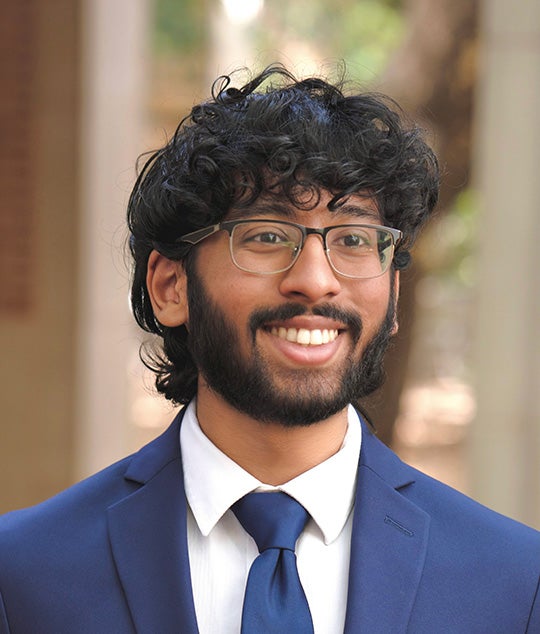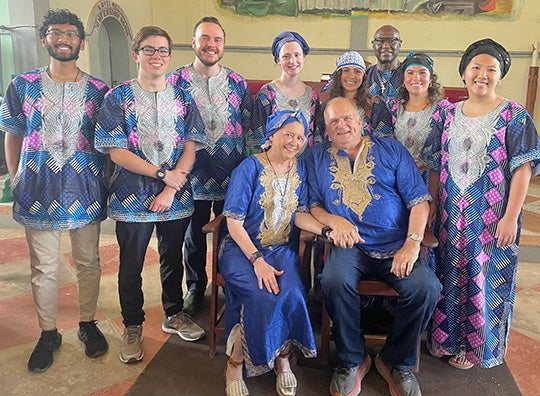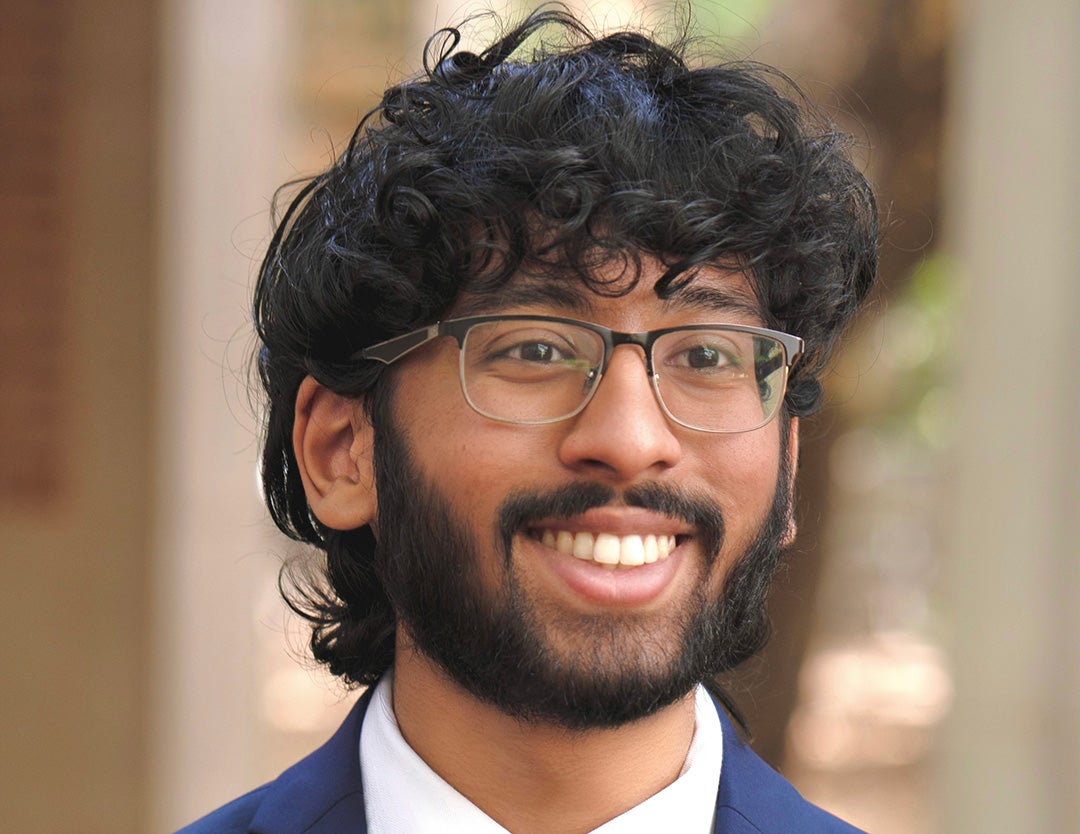Houston native Siddhant Patil first heard about Rice University when he was in the sixth grade. That’s when a close family friend announced he was going to Rice.
“Every time we’d go to their house or they’d come to our house, my parents would ask him ‘How’s college? How’s Rice?’” Patil said. “He’d always have wonderful things to say about it.”

A few years later when that friend’s younger brother opted to follow him to Rice, Patil and his parents became more interested in what the university could offer.
“(Our friends) loved it. They loved all the opportunities and the close connections,” the Elkins High School graduate said. “When senior year came around, I knew I wanted to go to Rice. I applied early decision and luckily got in.”
Now a junior at Rice on a pre-med track, Patil has been busy double majoring in kinesiology and religion.
“I knew I wanted to do something with religion because I grew up Hindu, but my parents also sent me to a Christian school for most of my life,” Patil said. “So five days of the week, I’d have chapel in the morning for an hour and study the Bible, then every Sunday I’d go to the temple.”
The balance of both faiths through his life was full of love, helpfulness and community, explained Patil, who came to Rice knowing he was going to pursue something related to medicine. When his O-Week advisor Adarsh Suresh turned out to be a pre-med religion and kinesiology double major, Patil said he discovered his path at Rice.
“That was just such a nice stroke of luck,” Patil said. “I asked him if I should take an intro-level religion class or an upper-level class for my first one. He suggested I jump into it with an upper-level class to see if I liked it. I loved it. The next semester, I declared it as a major.”
Patil has immersed himself in various religious studies courses, delving into the intricate interplay between religious beliefs, rituals and cultural landscapes within the context of health care.
“Siddhant is a rare human being,” said William Parsons, Rice’s Harry and Hazel Chavanne Professor in Christianity. “Aside from his excellence as a student, what is more important and becomes clear as you get to know him is his deep humanity. When we look back in 20 years we will see that he made a significant mark on the evolution of humanity and culture. I look forward to following his career.”
Meanwhile, Patil’s passion for scientific inquiry has driven him to actively contribute as an undergraduate research assistant at the Xue Gao Lab. He was part of the research team that identified a new Diels-Alderase, an enzyme that catalyzes the Diels-Alder reaction, a widely used method of synthesizing important materials and pharmaceuticals from raw materials for plastics and fuels to synthetic steroids.
“I am tremendously impressed by Siddhant’s positive energy, which has significantly enhanced our lab environment since September 2021,” said Gao, the Ted N. Law Assistant Professor of Chemical and Biomolecular Engineering and an assistant professor of bioengineering and of chemistry. “Working on cutting-edge research, his enthusiasm for tackling challenging scientific inquiries is invaluable, especially as we delve into complex scientific problems. Siddhant joined my lab as an undergraduate researcher merely one month after starting his freshman year at Rice University. Despite his demanding academic schedule, he dedicated his spare time during semesters and summer breaks to contribute to our projects. As a result of his dedication, Siddhant has co-authored two publications in prestigious chemistry journals, Nature Chemistry and the Journal of the American Chemical Society."
Selected for the Elizabeth Lee Moody Undergraduate Research Fellowship in the Humanities and the Arts, Patil has been able to contemplate the nuanced role of spirituality in the process of healing as well as the diverse approaches to health and well-being found across different faith traditions. He was able to travel to Sierra Leone, West Africa, with Rice alum Tom Lewis to shadow the work being done by the Southern Eye Institute.
“In this village, it was really interesting because I got to see how religion actually played such a big part in people’s lives in the context of a rural health clinic,” Patil said.
Sierra Leone has a majority Muslim population, but in the community of Serabu, the people’s beliefs are almost evenly split between Islam and Christianity.

“Seeing how religion played a part in their lives was beautiful,” Patil said, adding that he met multiple people whose families were a mix of Muslims and Christians, including the pastor of the church, whose father was Muslim. “It’s an example of how even though there are two different religions, it doesn’t matter. Everyone was just trying to build a country up together.”
Initially Patil admitted he was nervous over the Southern Eye Institute being affiliated with a Catholic mission, worried that people with other beliefs wouldn’t be permitted to receive care.
“When I asked Tom, he kind of looked at me like I was crazy (and said), ‘What do you mean? No, it’s free for everyone. It doesn’t matter,’” Patil said. “I saw that in practice, because a majority of the people who came to the clinic were Muslim and they got free, high-quality care irrespective of their religion.”
The community aspect that he’s observed in religion is also one of the things Patil said he values most about his time at Rice.
“If you need help on any problems, any questions, anything like that, someone will be there to offer it to you,” Patil said. “Seeing that in practice really motivated me to think, ‘Wow, everyone’s really here for one another.’”

